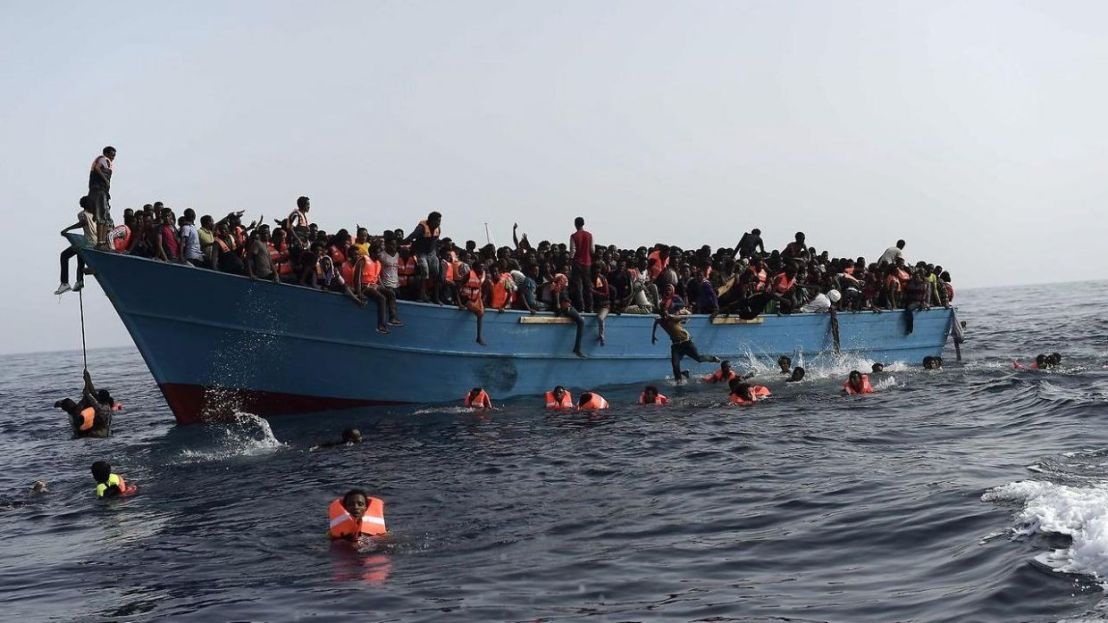
Since the 2000s there has been a tremendous acceleration of Africans attempting to reach the European coats by the sea. While Italy, the Iberian Peninsula, and the European Union are overwhelmed by the situation, the number of those attempting the adventure keeps growing day after day, and so are victims of shipwrecks.
Here are some facts. According to Human Rights Watch (HRW) 22400 have lost their lives while trying to reach the European border by the Mediterranean Sea since 2000. In 2014, about 3500 have died during. In 2015 and 2016, 3777 and 4576 have died respectively according to the International Organization of Migration (IOM). The latest update from the IOM had reported 2418 deaths in 2017 through August 13.
Causes of migrations
“I love my country, but I hate how it is there. If I go back, they will put me to jail” said a 26-year-old from Eritrea arriving at Lampedusa in 2015.
Migrants know the risk they face by attempting to cross the sea. They watch news and hear what is happening to other migrants. The question is why do they keep trying? Why are they so persistent even though the sword of Damocles is hanging over their heads every second of their trip? The reason is that they might have no other choice than fleeing from their homelands. Most rescued report to have gone looking for safety, opportunity, and better living conditions. They just need a guarantee for tomorrow.
Talking about safety recalls all the political and securities issues going on in Africa these days. The political instability and the spread of terrorist groups in the Maghreb and Sahelo-Sahelian area since the Arab Spring, Boko Haram movement in West Africa and the instability in the Delta of Niger, political instability plus Chebbab in the Horn of Africa and the unending instability in central Africa region. All together these facts create uncertainty and fear to people, businesses, and opportunities. As result, people go away to save their life while businesses try to secure their assets, and opportunities just disappear. We truly understand that the lack of safety and security jeopardizes opportunities for all.
Countries of Origins
Migrants come from all over the continent. There are people from Congo, Zimbabwe, Zambia, Uganda, Kenya, Tunisia, etc. However, there is a list of the top nine countries that flow the illegal immigration across the Mediterranean Sea based on the IOM report for 2016 & 2017.
Where African Migrants Come From
If it looks acceptable that a country in a political, security, and economic disgrace such as Somalia appears on this list, it is quite shocking for other countries such as Nigeria, Ivory Coast or Guinea. For many years these commodity economies have had a positive and dynamic economic growth. But again, the lack of strategies allowing their governments to transform those growths into real opportunities for youth, more jobs for the integration of left behinds, and a fair distributive justice has resulted in failed poverty reduction. This brings back to mind our previous article on “Who gets the Benefits from the Natural Resources of the African Continent?”
What to do?
At this point of time, if European leaders seem to be concerned not for humanitarian reasons, but because they are under pressure of their extreme Right-Wings. In the meantime, African leaders are almost quiet. Strange attitude.
I personally believe that this is the right time for reflection and actions. Reflection on what happened in the past, how it affected the continent, and what actions to take to prevent that it happens again in the future. Few centuries ago, the triangular trade forcedly took strong people from the continent to be sold as slaves away, today poverty and lack of opportunities are taking again brave and strong young people away. I think this should stop!!
Instead of being quiet, leaders in Africa should stand up and say it’s enough. Enough of dying while attempting to cross the Sahara or the Mediterranean Sea, enough of going to seek elsewhere what can be found in Africa, a better life. It is enough to let European leaders to tell African leaders what to do for African people. African issues should be solved by African people under African initiatives.
It is also time for reforms in Africa. Institutional reforms will help African citizens to trust and start relying on institutions rather than on people. Moreover, the institutional reforms will help to rooting-out issues such as corruptions, mismanagement, and fraud, and to gain the trust of international partners. There is also a need of policies that promote entrepreneurship and employment creation, which is a very strong strategy in reducing poverty. Finally, and overall there is a need of accountability between policy makers, public administration, and the citizens ‘expectation. The all idea is to create an environment when local resources are leveraged into opportunities and wealth somewhat equally distributed.